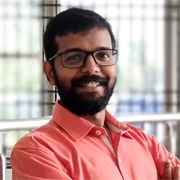Political rivals are busy writing off the Congress's promise to implement the Nyay scheme in Kerala as a poll gimmick. However, a group of experts and economists are of the view that the scheme – the Congress's version of the Universal Basic Income programme being implemented in several welfare economies – is practical in a state like Kerala. Some, meanwhile, believe that the scheme is easier said than done, provided Kerala's fiscal limitations.
The Congress in Kerala has sounded the poll bugle with the promise to implement the Nyay scheme if it is voted back to power. The scheme, originally introduced by Rahul Gandhi in the party's manifesto for the 2019 Lok Sabha polls, aims to provide Rs 6,000 per month to the poor households in the state, which means Rs 72,000 a year.
Rahul Gandhi conceived the Nyay scheme reportedly in consultation with experts including noted French economist Thomas Piketty.

Reacting to the Congress's announcement, Finance Minister Thomas Isaac said that he wanted to know where the resources for the scheme will come from. The Congress's stance is that the party would roll out its detailed plan when the time comes.
Noted economist Jose Sebastian told Onmanorama that a government with political will can implement the scheme comfortably. He said it would not be difficult to raise the funds to implement the scheme if the government decides to collect taxes more aggressively.
“Sixty per cent of the state's own revenue comes from liquor, lottery, motor vehicles and fuel. The successive governments have failed to collect taxes properly as they went after populist measures. The government has to compel people to pay taxes,” he told Onmanorama.
He said he was in favour of the Nyay scheme as it would trigger the movement of the economy. “The Rs 6,000 that is paid to a poor family will roll into the economy immediately and sales will flourish,” he pointed out.
He suggested a higher amount of property tax from the rich and the middle class as a measure to find out the amount to help the poor. “However, such measures are not possible overnight,” he said.
Former State Planning Board member G Vijayaraghavan also shared Sebastian's optimism that the Nyay scheme is 'doable'.
“It is basically meant to be a basic minimum income for a family. Every rupee that you give to the poor actually get spent. If you give Rs 6,000 to a family, it will be spent in a week. When they spend the money it actually rotates in the economy. The government will get back a good percentage of it in the form of taxes,” he said, detailing how the government can find the money. He also suggested combining the various welfare pensions and other aid being given to the poor.
He said the amount to be paid as basic income will come down once the economy can create more jobs.
Economist B A Prakash, a staunch critic of the current ways of public spending, was also in favour of the minimum income scheme. “A scheme that envisages to pay a minimum income to the weaker sections is a positive sign,” he said, alleging loopholes in the current welfare schemes.
He said the public spending pattern has to be changed in order to facilitate the smooth implementation of the scheme. Prakash is a former professor and head, Department of Economics, University of Kerala.

'Funds, identification issues'
A former top bureaucrat, however, did not share the economists' optimism. He, obviously more aware of the administration hurdles, said the implementation of a project of Nyay's scale won't be that easier in the cash-starving Kerala, at least for two-three years when the COVID's ill effects on the economy are likely to linger.
“The implementation of the scheme will be difficult. Even if there are 10 lakh families as beneficiaries, it would need Rs 7,200 cr for a year. It would place an additional burden on the state coffers. At the present state, more borrowing is also not possible. The identification of the true beneficiaries will be another problem as a lot more than the deserving people would try to get the money,” he said.
He, however, said the identification problem could be solved to an extent if district collectors are allowed to do the job without political intervention. He said the scheme can be implemented at the national level as the central government can raise the resources in multiple ways.
What the Congress plans
The Congress's plan is to identify 10 lakh eligible families in the beginning, it is learnt. It would cover around 45 lakh people. The party will not be doing away with the current welfare pensions. However, a person will be able to draw the benefits of either one of the schemes.
KPCC Public Policy Committee chairman John Samuel Adoor told Onmanorama that the party has a very realistic plan ready and it could be implemented step by step.
“For us it's neither a favour nor about patronisation. It's about justice to the people,” he said.
Congress digital media cell chief in Kerala, Anil K Antony, also said the scheme will be practical in the state. “This is not for everyone, but for a targetted group, that is the poorest among the poor,” he said. Anil has written several columns on universal basic income.
Universal Basic Income
Universal Basic Income, the new buzzword among social democracies, is something both the right wing and the left wing agree upon.
The BJP-led Union government's Economic Survey, 2016–17 has a chapter entitled “Universal Basic Income: A Conversation With and Within the Mahatma.”
“Universal Basic Income is a radical and compelling paradigm shift in thinking about both social justice and a productive economy. It could be to the twenty first century what civil and political rights were to the twentieth,”it reads.



















